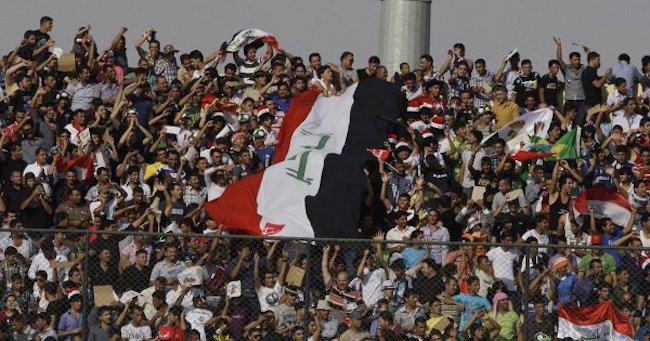
ISIS have killed at least 29 people in a suicide bomb attack at a football stadium in Baghdad, Iraq.
Security officials say that 29 people are confirmed dead, with a further 60 seriously injured. The attack took place during a football match in the city of Iskanderiyah, 30 miles from the capital.

BYPASS THE CENSORS
Sign up to get unfiltered news delivered straight to your inbox.
You can unsubscribe any time. By subscribing you agree to our Terms of Use
Latest Video
Aljazeera.com reports:
The Islamic State of Iraq and the Levant (ISIL) group that controls swathes of territory in Iraq’s north and west was behind the attack, according to Amaq news agency, which is affiliated with the group.
At least 60 people were killed earlier this month in an attack claimed by ISIL 80 km further south, in Hilla, when an explosives-laden fuel tanker slammed into an Iraqi security checkpoint.
An apparent escalation of large bombings targeting areas outside ISIL’s primary control suggests that Iraqi government forces may be stretched thin after recent gains against the group in the western and northern provinces.
Thousands protest the government
Meanwhile, thousands have rallied in Baghdad in support of Iraqi Shia cleric Muqtada al-Sadr, who has taken the lead role in protests demanding government reforms.
Al-Sadr’s associate, Sheik Asad al-Nasiri, delivered a message from the cleric at a rally on Friday in the Iraqi capital, giving Prime Minister Haider al-Abadi 24 hours to implement wide-ranging reforms such as installing technocrats in key political positions.
Otherwise, the message says, the protesters will not limit themselves to sit-ins outside the heavily fortified Green Zone in Baghdad, where the government is headquartered and where al-Sadr’s followers demonstrated last week.
The weekly rallies in Baghdad are meant to put pressure on Iraq’s political leadership.
The prime minister’s efforts to implement reform have been thwarted by his own political mis-steps as well as the country’s increasingly sectarian politics.
Last month, Abadi, now a year and a half into his four-year term, said he wanted to replace his ministers with technocrats to challenge the system of patronage that encourages corruption by distributing posts along political, ethnic and sectarian lines.
Sadr and his supporters have held regular demonstrations demanding reforms to tackle corruption, which is eating into Baghdad’s resources even as it struggles with falling revenues due to a slump in global oil prices and high spending caused by the costs of war against ISIL.


